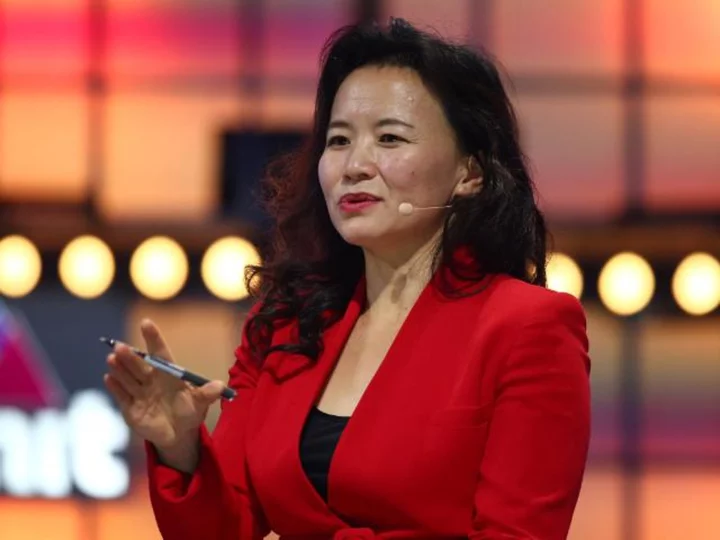Friends and family of Australian television anchor Cheng Lei on Monday renewed calls for her release from detention in China, 1,000 days after she was held by authorities on espionage charges.
Cheng, a former business anchor for China's state broadcaster CGTN and mother of two, is accused of illegally supplying state secrets overseas, a charge that carries a possible sentence of between five years to life in prison.
Australian authorities have expressed concern about her detention amid suggestions from analysts that strained ties between Canberra and Beijing may have provided impetus for the opaque case against her.
Cheng had been on her way to work on the morning of August 13, 2020, when she "was taken by China's Ministry of State Security," her partner Nick Coyle said in a letter published in The Australian newspaper on Monday.
"Now 1,000 days later, we still don't know why she was taken, why she was charged with deliberately vague national security breaches or when she might be with us again," he wrote.
Australia's Minister of Foreign Affairs Penny Wong also released a statement on Monday, writing on Twitter: "Despite being separated from her family for so long, she has shown great resilience and courage. All Australians want to see her reunited with her children."
Wong added that the ministry shared the concerns of Cheng's friends and family about "the ongoing delays in her case," and that it would continue advocating for Cheng "at every opportunity with the Chinese government."
Chinese authorities have not revealed details of the allegations against Cheng, and observers have raised concerns over the secretive, closed-door court process.
In March last year, Australia's ambassador to China was denied entry to the start of Cheng's trial in Beijing, a move he called "deeply concerning." The court has not yet handed down a verdict, delaying the announcement multiple times -- leaving Cheng stuck in custody, and her loved ones without clarity on her fate.
Cases related to national security are typically tried behind closed doors in China. But the lack of transparency in Cheng's case against the backdrop of deteriorating relations between China and Australia prompted concerns from analysts that the charges may be politically motivated.
Soon after Cheng was detained, two Australian journalists working in China fled the country after authorities attempted to question them on national security grounds, leaving Australia's media without any journalists in China for the first time in nearly 50 years.
While there were still some Australian journalists working in China, all are employed by non-Australian media companies.
There are also widespread concerns about Cheng's wellbeing. Last June, her partner Coyle, formerly head of the China-Australia Chamber of Commerce, told CNN affiliate Sky News Australia that Cheng had faced "difficult health challenges along the way," exacerbated by an inadequate prison diet. At the time, her monthly consular visits had been suspended, ostensibly due to Covid-19 restrictions, he said.
In his letter published Monday, Coyle described Cheng spending six months cut off from the outside world, limited to those consular visits, which began every month with Cheng "being led in, blindfolded and handcuffed." After six months, she was placed with other cellmates and given access to an outdoor courtyard for two hours a day, he wrote.
He described her sense of humor as "firmly intact," and detailed the ways she's making the most of time in detention: meditation, reading, reflection. But the separation from her children, ages 11 and 14, is the hardest part, he added. Coyle is not their father.
Cheng's two children are being cared for by their grandmother in Melbourne, Australian public broadcaster ABC reported at the time of her original detention. Cheng has not been able to speak with her children since she was detained, according to a statement from Australia's Media, Entertainment and Arts Alliance, of which Cheng is a member.
"She wonders who their friends are and what they are doing each day," Coyle wrote in the letter. "For a mother not to see her children for 1000 days is excruciating. To not be able to be there for them is agonizing."

